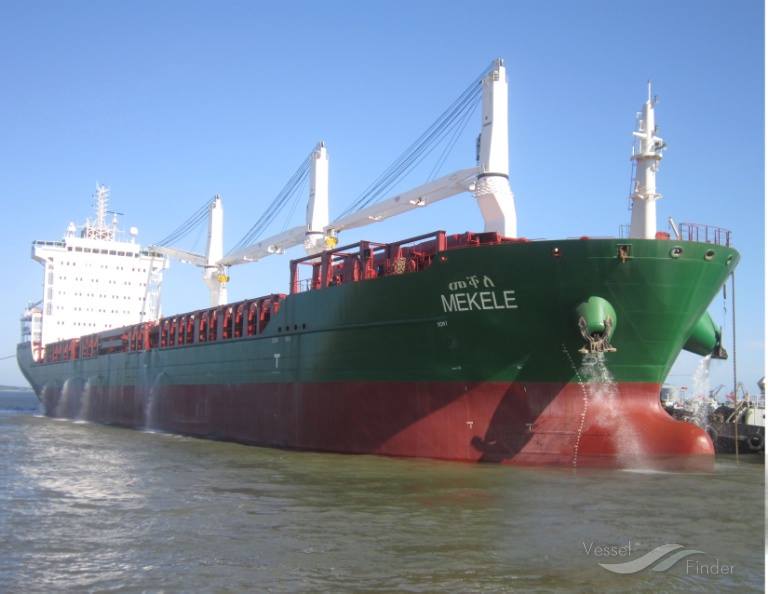Danakali banks on new investor mood to fund Eritrean mineBy
Barbara Lewis | Reuters
Fertiliser miner Danakali (DNK.AX) (DNK.L) aims to raise $322 million this year to develop giant potash reserves in Eritrea, industry sources say, banking on Asmara’s warmer ties with Ethiopia to help lure investors.
The project will test the changing mood in the West towards the isolated nation, sandwiched between Somalia and Venezuela at the bottom of the World Bank’s rankings on ease of doing business, and buffeted by accusations of human rights abuses.
There are already signs of a shift. Another miner working in the area, Altus Strategies (ALS.L), has seen an upturn in investor interest in Eritrea and Ethiopia, while mining lawyers cite increased appetite for projects in the Horn of Africa neighbours that fought a war in 1998-2000.
Danakali, which has worked in Eritrea since 2009, finalised a deal to sell its potash and also listed in London in July, barely a month after Ethiopia under its new Prime Minister Abiy Ahmed launched a rapprochement with Eritrea to end decades of hostility.
The Australia-based miner will be relying on changing perceptions, as well as the quality of its reserves and the proximity of its mine to the coast, to draw in funds.
“Eritrea has been relatively successful in attracting mining companies even under the severe constraints caused by the old geopolitical circumstances,” Chairman Seamus Cornelius said.
He told Reuters the government had established transparent mining rules and should “be accorded the respect they deserve”.
The mine needs $322 million for its first phase to start production in 2022 of 470,000 tonnes per year of low-chloride potassium sulphate (SOP), which commands a premium to the more common muriate of potash (MOP).
Cornelius did not give a timeline. But industry sources, speaking on condition of anonymity, said the aim was to have those funds in place by the end of 2018.
EuroChem, the Switzerland-based fertiliser maker owned by Russian industrialist Andrei Melnichenko, signed a “take-or-pay” deal in June to buy up to 100 percent of output from Danakali’s Colluli mine and a minimum of 87 percent for 10 years, provided production starts before July 2022.
“There was a sense and an understanding that we were making the right move at the right time, with the right partners,” EuroChem Chief Executive Dmitry Evgenyevich Strashnov said.
EuroChem, one of the world’s largest producers of nitrogen-based fertilisers, has ambitions to be a global potash market player by 2020 with capacity of 2 million tonnes.
Danakali’s Colluli mine is well placed to be a major supplier with 1.1 billion tonnes of reserves and a mine life estimated at more than 200 years. The deposits are cheap and easy to extract as they lie just 16 metres below the surface.
INVESTMENT RISKDanakali’s Colluli Mining Share Company (CMSC) is a 50:50 venture with state-owned Eritrean National Mining Corporation (ENAMCO), a split analysts say may unnerve some investors.
“This obviously means the risk of nationalisation is somewhat higher,” said Humphrey Knight, potash analyst at CRU International. “Eritrea doesn’t really have a large mining industry and it’s really difficult to predict how the government might act if or when the project enters production.”
ENAMCO could not be reached for comment. But officials have previously said Eritrea was committed to offering a stable environment. “We don’t change the game in the middle,” the director-general for mines, Alem Kibreab, told Reuters in 2016.
Criticism of Eritrea’s human rights record, including its compulsory national service programme, has also made many investors wary, despite government denials of the abuse charges.
When Lundin Mining Corp (LUN.TO) bid for Canada’s Nevsun Resources Ltd (NSU.TO) in May, its initial offer was structured to avoid taking Nevsun’s Eritrean mine at Bisha because of rights concerns. It changed tack in July, as Ethiopia and Eritrea’s rapprochement gained pace, offering to buy Bisha too.
But Nevsun rejected the approaches, agreeing in September to a buyout by China’s Zijin Mining Group Co (601899.SS).
Mining industry lawyers said the success of Bisha, which has produced gold, silver, copper and zinc since construction was completed in 2010, showed ventures in Eritrea could succeed.
RISING INTERESTFor Danakali, Eritrea’s isolation has meant it had the chance to secure access to the kind of “tier one” resource — long life, low cost, high grade — normally snapped up by much bigger operators, Cornelius said.
It may not be so easy in future. Kevin Pietersen, a Johannesburg-based partner at law firm Hogan Lovells, said there was “increased appetite for both Ethiopia and Eritrea” this year.
Junior explorer Altus Strategies, which has been working on copper and gold projects in Ethiopia since 2010, said mining interest in both African countries had climbed.
“We have had a number of expressions of interest from people about Ethiopia and also about Eritrea even though we’re not currently active there,” CEO Steven Poulton said, adding that Altus was sending a team to assess opportunities in Eritrea.
For land-locked Ethiopia, access to Eritrea’s long coast may prove an early dividend of peace. The prime minister’s chief of staff, Fitsum Arega, said in July it was “an urgent priority for Ethiopia” to speed up the transit of goods, which now mostly flow through the ports of another neighbouring state, Djibouti.
Danakali’s mine lies close to the Ethiopian border and just 75 km (47 miles) from Anfile Bay, where the mining company firm could build a port for exports. The potash could also be trucked 230 km (144 miles) to Eritrea’s established Massawa port.






















